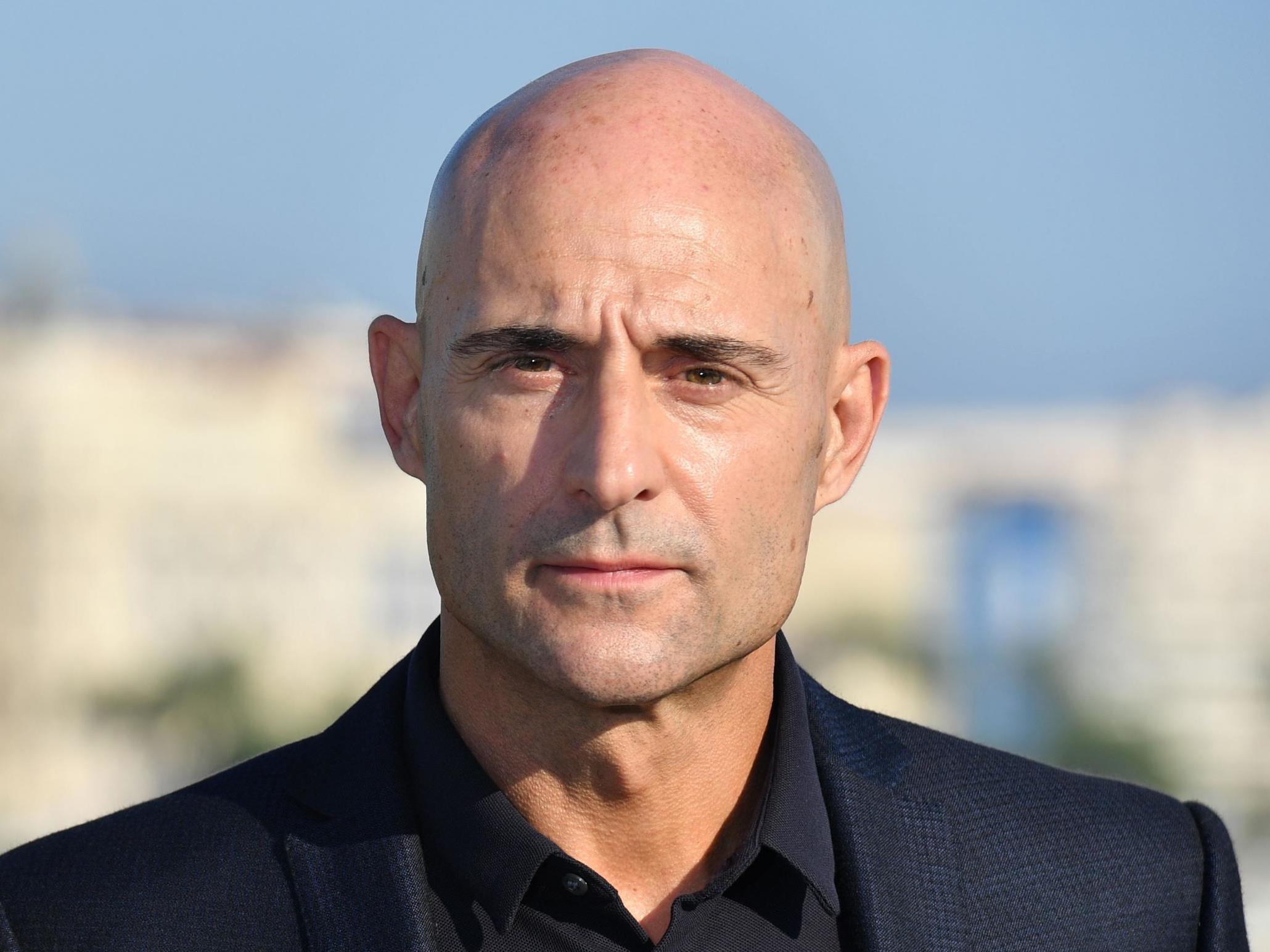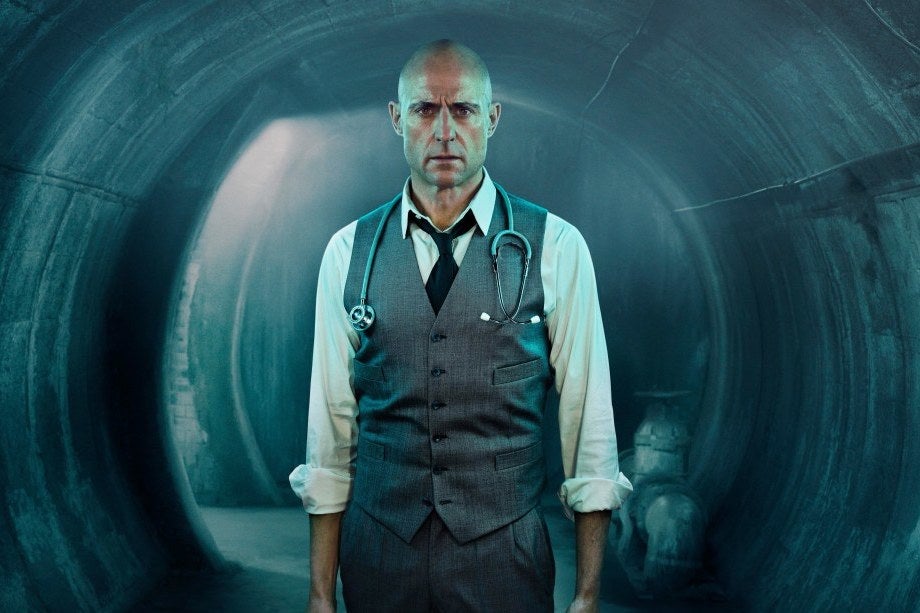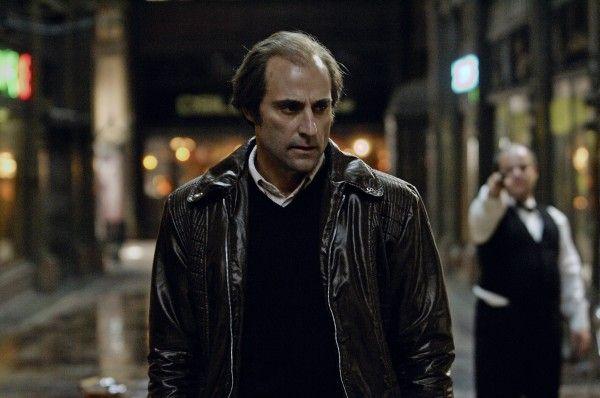Mark Strong: ‘Listen to any person who has been famous – they hate it’
The brilliant character actor talks to Fiona Sturges about adapting the Norwegian series ‘Valkyrien’ for Sky One as ‘Temple’, his unusual upbringing and why the fame industry today is like ‘big game hunting’


Your support helps us to tell the story
From reproductive rights to climate change to Big Tech, The Independent is on the ground when the story is developing. Whether it's investigating the financials of Elon Musk's pro-Trump PAC or producing our latest documentary, 'The A Word', which shines a light on the American women fighting for reproductive rights, we know how important it is to parse out the facts from the messaging.
At such a critical moment in US history, we need reporters on the ground. Your donation allows us to keep sending journalists to speak to both sides of the story.
The Independent is trusted by Americans across the entire political spectrum. And unlike many other quality news outlets, we choose not to lock Americans out of our reporting and analysis with paywalls. We believe quality journalism should be available to everyone, paid for by those who can afford it.
Your support makes all the difference.When the actor Mark Strong was five years old, his mother, an Austrian immigrant in London, sent him to Reedham Orphanage, a state-run home in Surrey for children without fathers. Its residents were bussed out to local primary schools by day and brought back in the evenings. It sounds like something out of a Victorian novel, I say. “Oh yes, it was very Dickensian,” he says, cheerfully. “But I actually had a good time. The other children were the brothers and sisters that I didn’t have. I don’t remember it being bad.”
When Strong was 11, his mother, who worked as an au pair and in a clothing factory, moved to Munich for work. So she sent her son, who was born Marco Guiseppe Salussolia (his Italian father left when he was an infant), to another state-sponsored boarding school, this time in Norfolk. Had he not been institutionalised for most of his childhood, Strong doubts he would have made it as an actor. Along with making him self-sufficient, he also learnt to be a chameleon. “I took who I was to become from the people around me,” he says. “I took on roles as a way to survive.”
Strong is now 56 and one of the hardest-working actors in the business. Look at his CV and it would probably be quicker to list the films and TV series he hasn’t been in, as opposed to the ones that he has. More often in supporting roles than the lead, he has nonetheless stolen the show in major-league movies such as RocknRolla, Sherlock Holmes, Green Lantern, Tinker Tailor Soldier Spy, The Imitation Game, the Kingsmen series and the DC comedy, Shazam! His specialism is cartoon villains, spies, hired henchmen and bloodthirsty bosses. In Syriana, he was a Lebanese assassin who delighted in pulling out George Clooney’s fingernails, while in Kathryn Bigelow’s al-Qaeda thriller Zero Dark Thirty, he yells at a room full of CIA operatives: “Bring me people to kill.”
When I ask if, just once, he’d like to play a big softie, maybe star in a romcom, he shakes his head. “God no. When I started acting it was always about being someone I’m not. I never wanted to play myself, or anything remotely close to it. Obviously, I don’t go around at home threatening the wife and kids. I’m generally quite a nice person in real life, so to pretend to be that dark character is quite delicious.”
We meet in a room at the top of a narrow staircase in a Soho members’ club. Suited, and with scrupulously shined shoes, Strong has dressed up for what is a rare series of interviews. A generally private person, he says he avoids talking to the press where possible – “no offence to you”, he adds, kindly. But he is making an exception for his latest project, Temple, a smart, offbeat Sky One drama series in which he stars and is co-producer. He plays a surgeon who, driven by his wife’s seemingly untreatable illness, sets up an illegal clinic in the abandoned tunnels underneath the eponymous London Underground station. Aided by Daniel Mays’s catastrophist transport worker and Carice van Houten’s medical researcher, he ends up tending to criminals and ne’er-do-wells who are unable to seek medical assistance through the usual channels.
Produced by Strong’s partner, Liza Marshall, the series is adapted from a critically acclaimed Norwegian drama, Valkyrien. Strong and Marshall had watched it at home and liked it so much that they immediately began phoning around to see if anyone had the rights to it. “Two days later we got on a plane to Oslo,” recalls Strong. “A big American company was after the show, but it turned out they hadn’t actually asked if they could have it. They’d already started talking to distributors, and I think the Norwegians were a little miffed. We came in with a big heart and said we loved it, which we did, and they let us take it and run with it.”
There’s nothing good about being the centre of attention and having people pry into your private life... The social media maw needs to be fed, and if someone doesn’t get their picture with you then they’re not happy
Valkyrien was named after a disused tube station in Oslo; it was Strong’s idea that they rename the series Temple – “I literally had to go over the underground map and find a suitable name, and Totteridge & Whetson wasn’t cutting it.” To his surprise, Transport for London allowed them to shoot in the disused Aldwych tube station. “It’s extraordinary. There’s miles and miles of abandoned tunnels. Imagine carrying a camera dolly, which is incredibly heavy, all the way down there. The lifts don’t work underneath Aldwych and The Strand, so the guys had to carry this stuff up and down hundreds of stairs.”
Strong is delighted to be back working in television where stories can be stretched over eight hours or more and allow for greater nuance. “It’s about mining a character and being able to take it wherever you want. With Temple, we have a second series for which we’ve written a treatment that springboards off the first series, and what’s been amazing is realising you can just let your imagination fly. Film is a much tighter snapshot, so its excellence comes from being able to tell a story with a number of small scenes within a two-hour time limit.”

He notes that actors will follow the best writers, which is why we are currently seeing so many Hollywood stalwarts turning to television, among them Nicole Kidman, Emma Stone and Meryl Streep. Asked if cinema’s current obsession with CGI-heavy spectacle makes it less creative, he replies: “Hmmm, maybe” and leaves it at that. It’s probably an unfair question, given that much of Strong’s career has been taken up working with green screens in place of people and scenery. Does that get a little wearing? “Not really,” he says. “I mean, the whole job is make-believe. If we were doing a scene right now, there’d be a camera there” – he points at a chair – “and there’d be a clapper loader standing there, and someone on the phone over there. There’d be cables everywhere. So the whole green screen thing is just an extension of that. If you’re being attacked by a big monster, you’ve just got to imagine the big monster.”

Watch Apple TV+ free for 7 days
New subscribers only. £8.99/mo. after free trial. Plan auto-renews until cancelled

Watch Apple TV+ free for 7 days
New subscribers only. £8.99/mo. after free trial. Plan auto-renews until cancelled
He recalls the 2007 fantasy, Stardust, based on the Neil Gaiman novel, in which he and the actor Charlie Cox did a battle scene with a load of tennis balls on poles. His role as the leather-clad super-villain Dr Thaddeus Sivana in this year’s Shazam! effectively meant four weeks in a warehouse dangling from a harness. It wasn’t the most fun he’s had, though he liked how it turned out: “Suddenly DC [Films] realised all their stuff was too dark, so they made it funny, which was a good decision.”

He tells me his sons, who are 11 and 14 respectively, can’t get enough of Marvel movies. “They think Avengers: Endgame is amazing. I think the big screen now caters to CGI and the world of invention. I took them to see [Todd Douglas Miller’s documentary about the moon landing] Apollo 11, and they were bored senseless. The first time we saw the moon [the shot] goes on for 20 or 30 seconds, which for a kid is forever. They didn’t get the historical aspect and how amazing that was.”
Before Strong became an actor, he was going to be a lawyer. He had gone to Germany to study law but did a year of it and realised it wasn’t for him. He came back to Britain and found acting to be a breath of fresh air. After a year of rep (repertory theatre) in Worcester, he went to the Contact Theatre in Manchester and then spent a year at the RSC standing on stage, holding a spear. His apprenticeship was long and unglamorous “but I knew that I was watching people such as Ian McKellen and Brian Cox who knew what they were doing. That element of being known was irrelevant to me. Perhaps naively, stupidly – who knows? – I didn’t use any of that to get on. I just knew I had to get down and work.”
After obligatory appearances on Morse and The Bill, he bagged a part in the landmark social history drama Our Friends in the North, named by the BFI as one of the 20th-century’s 100 greatest television programmes, alongside Daniel Craig, Gina McKee and Christopher Eccleston. Where his co-stars were thrust into the limelight, Strong kept a lower profile, becoming a dependable character actor who has never been without work. He won’t name names, but mentions friends from the Nineties who quickly became famous, and were miserable. He recalls going to their houses and having to close the blinds and sit on the floor to avoid the photographers outside. “I see young people thinking fame is something they want to achieve, yet you listen to any person who has been famous and they hate it,” he says. “There’s nothing good about being the centre of attention and having people pry into your private life. Nowadays, it’s like big game hunting. The social media maw needs to be fed, and if someone doesn’t get their picture with you then they’re not happy.”
More importantly, he says, celebrity rarely serves the work. “If I am going to persuade people that I am a New York mob boss, or a head of the Jordanian Secret Service, knowing my home life and what I drink and what clubs I go to isn’t going to help that. I want to stay below the parapet. It’s a lot nicer there.”
Temple returns to Sky One on Friday at 9pm
Join our commenting forum
Join thought-provoking conversations, follow other Independent readers and see their replies
Comments